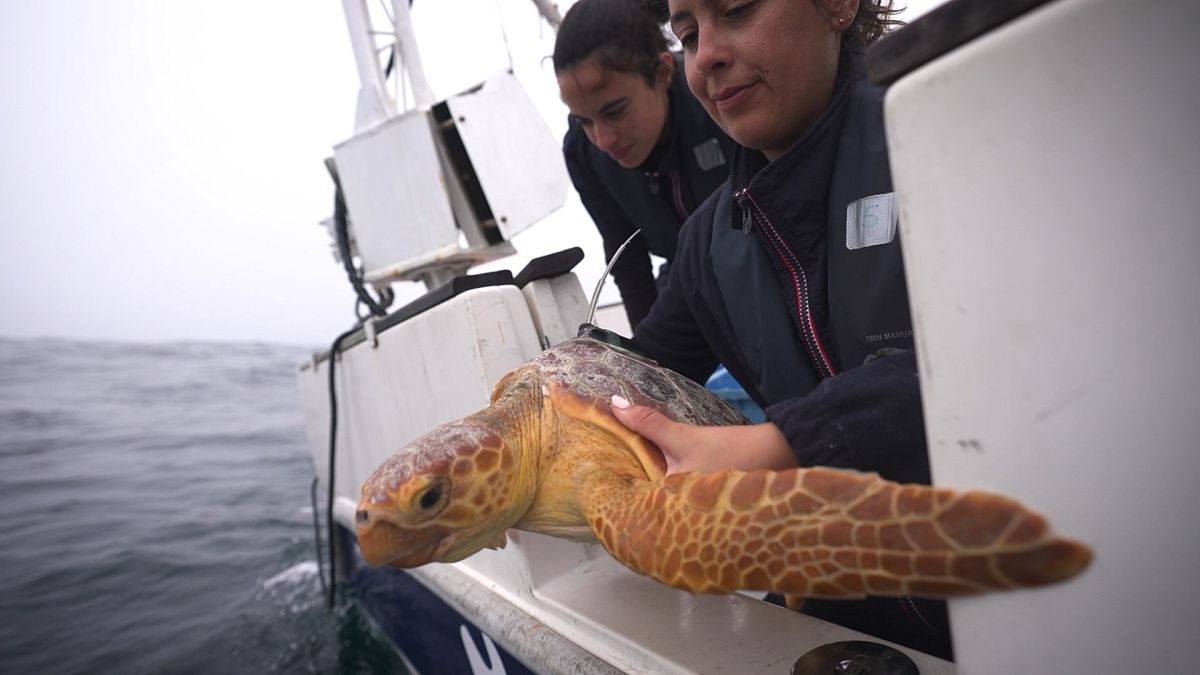There are two ECOMARE centres -The CPRAM hospital is open 24 hours a day, all year round and there is the CEPAM research centre, promoted by the University of Aveiro, which is open to the public on the third Wednesday of each month.
In the Aveiro estuary in Portugal, biodiversity and conservation are at the heart of the ECOMARE project. Scientists and researchers working on this European initiative, promoted by the University of Aveiro, are investigating the impact of climate change on marine flora and fauna and are also taking care of injured animals.
"There are two priorities: One - sustainability and two - the rehabilitation and conservation of marine life. We are examining aquaculture and biotechnology, but above all, the recovery of marine animals, because it is essential for us to help Portugal with this and, if necessary, help other countries" Artur Silva, the vice-rector for Research and Innovation at the University of Aveiro told Euronews.
The CPRAM hospital is open 24 hours a day, 365 days a year. and has the capacity to treat more than 1,000 injured animals per year. Birds account for most of the admissions. Dolphins and turtles are also cared for. Costa Nova is one such turtle who was caught in a fishing net, she's been at the centre for seven months.
"After she was treated for injuries which included some deep cuts, she recovered and is now ready to be freed. We fitted her with a transmitter to see how she will move once back in the ocean," said Catarina Eira, the scientific coordinator of CPRAM.
The hospital is generally closed to the public to preserve the health and recovery of the animals, many of which have fractures, or have ingested hooks, plastic, and toxins.
However, visitors are allowed to come to the CEPAM centre on the third Wednesday of every month for educational purposes.
"I have learned that the coral in these aquariums is home to many fish, that marine life is as important as our own, and that we should not destroy the home of the fish," said Pedro, one of the centre's young visitors.
The total budget for this project is €4.8 million, 84.3% has been subsidised by the European Union's cohesion policy.
Many experts from around the world travel to the Aveiro estuary to examine the benefits of biotechnology and the effects of climate change on marine life.
"We use a lot of coral to study biotechnology issues. Coral is full of chemicals that could be used in the discovery of new drugs to cure cancer and other illnesses, such as neurodegenerative diseases like Alzheimer's and Parkinson's," said Ricardo Calado, the scientific coordinator of CEPAM-ECOMARE.
Caring for the oceans is the basis of this project because the oceans belong to all of us. Today, Costa Nova returns to the Atlantic. This project, which won the REGIOSTARS Award, is considered one of the fifteen best initiatives supported by the European Union in the last 15 years.

